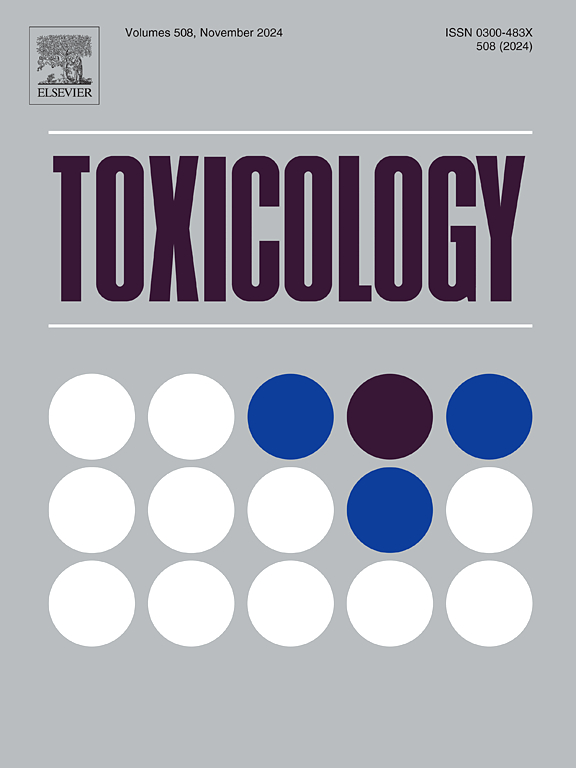索拉非尼通过干扰小鼠肠道菌群和激活LPS/TLR4/NF-κB信号通路诱导肠道毒性。
IF 4.6
3区 医学
Q1 PHARMACOLOGY & PHARMACY
引用次数: 0
摘要
Sorafenib是一种多靶点酪氨酸激酶抑制剂,已被FDA批准为晚期肝细胞癌的标准一线治疗药物。然而,其胃肠道不良反应的高发生率极大地限制了其临床应用。对GI损伤的分子机制仍知之甚少。在这项研究中,我们通过小鼠模型探讨了肠道微生物群在索拉非尼诱导的肠道毒性中的关键作用,并提出了一种潜在的治疗干预策略。索拉非尼给药引起小鼠肠道病理性损伤、全身炎症和氧化应激。抗生素(ABX)治疗和粪便微生物群移植(FMT)实验表明,索拉非尼诱导的胃肠道毒性是由肠道微生物群介导的。16S rRNA测序分析显示,索拉非尼显著扰乱肠道微生物稳态,导致革兰氏阴性菌丰度增加,脂多糖(LPS)的生物合成上调。肠道转录组测序进一步表明,索拉非尼通过受损的肠道屏障诱导革兰氏阴性细菌来源的LPS渗漏,并通过TLR4/NF-κB通路激活加剧炎症。值得注意的是,tlr4特异性抑制剂TAK-242有效地减轻了索拉非尼诱导的肠道损伤。综上所述,我们的研究揭示了索拉非尼通过肠道微生物群失调和LPS/TLR4/NF-κB信号通路加重肠道损伤的新机制,同时提出了TAK-242作为一种有前景的治疗策略。这项研究强调了肠道微生物群在索拉非尼诱导的肠道损伤中的关键作用,并为临床干预提供了新的途径。本文章由计算机程序翻译,如有差异,请以英文原文为准。
Sorafenib induces intestinal toxicity by disturbing gut microbiota and activating the LPS/TLR4/NF-κB signaling pathway in mice
Sorafenib is a multitargeted tyrosine kinase inhibitor approved by the FDA as a standard first-line therapy for advanced hepatocellular carcinoma. Nevertheless, the high incidence rate of gastrointestinal (GI) adverse effects substantially limits its clinical application. The molecular mechanisms underlying the GI damage remain poorly understood. In this study, we explored the critical role of gut microbiota in sorafenib-induced intestinal toxicity using a mouse model and proposed a potential therapeutic intervention strategy. Sorafenib administration caused intestinal pathological damage, systemic inflammation, and oxidative stress in mice. Antibiotic (ABX) treatment and fecal microbiota transplantation (FMT) experiments demonstrated that the GI toxicity induced by sorafenib was mediated by the gut microbiota. 16S rRNA sequencing analysis revealed that sorafenib dramatically disturbed gut microbial homeostasis, leading to an increased abundance of Gram-negative bacteria and upregulated biosynthesis of lipopolysaccharide (LPS). Intestinal transcriptomic sequencing further indicated that sorafenib induced Gram-negative bacterial-derived LPS leakage via the compromised intestinal barrier and exacerbated inflammation via TLR4/NF-κB pathway activation. Notably, the TLR4-specific inhibitor TAK-242 effectively attenuated sorafenib-induced intestinal damage. Taken together, our study unveils a novel mechanism by which sorafenib exacerbates intestinal injury through gut microbiota dysbiosis and LPS/TLR4/NF-κB signaling pathway, while proposing TAK-242 as a promising therapeutic strategy. This study underscores the critical role of the gut microbiota in sorafenib-induced intestinal damage and offers new avenues for clinical intervention.
求助全文
通过发布文献求助,成功后即可免费获取论文全文。
去求助
来源期刊

Toxicology
医学-毒理学
CiteScore
7.80
自引率
4.40%
发文量
222
审稿时长
23 days
期刊介绍:
Toxicology is an international, peer-reviewed journal that publishes only the highest quality original scientific research and critical reviews describing hypothesis-based investigations into mechanisms of toxicity associated with exposures to xenobiotic chemicals, particularly as it relates to human health. In this respect "mechanisms" is defined on both the macro (e.g. physiological, biological, kinetic, species, sex, etc.) and molecular (genomic, transcriptomic, metabolic, etc.) scale. Emphasis is placed on findings that identify novel hazards and that can be extrapolated to exposures and mechanisms that are relevant to estimating human risk. Toxicology also publishes brief communications, personal commentaries and opinion articles, as well as concise expert reviews on contemporary topics. All research and review articles published in Toxicology are subject to rigorous peer review. Authors are asked to contact the Editor-in-Chief prior to submitting review articles or commentaries for consideration for publication in Toxicology.
 求助内容:
求助内容: 应助结果提醒方式:
应助结果提醒方式:


